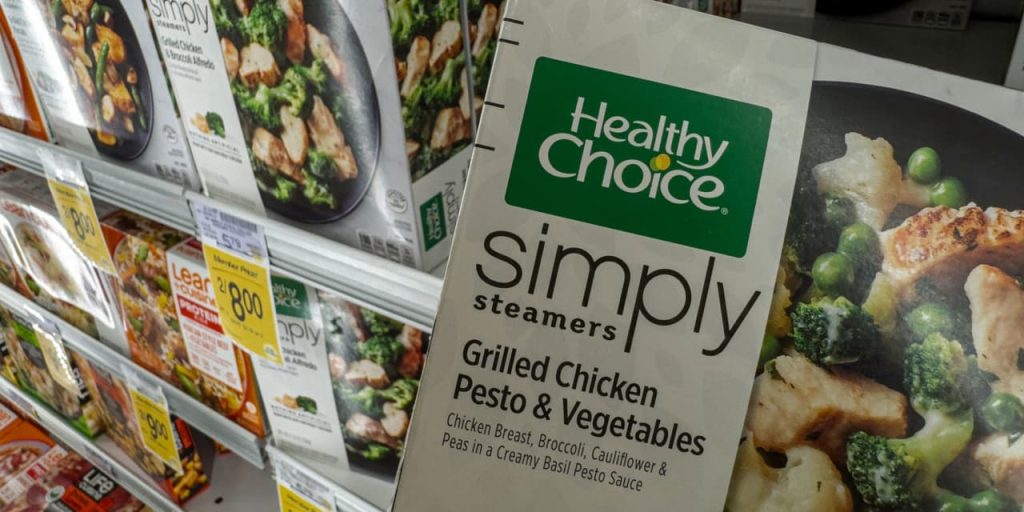Food inflation has slowed down. That’s good news for consumers, but staples companies are already feeling the pinch.
On Thursday, packaged food giant
Conagra Brands
reported shrinking revenue for the first time since 2021 and said it expects the number to slide further this year. The stock plunged 2.7% on the news, dragging down other food stocks.
Campbell Soup
shares lost 2.1%, while
General Mills
fell 0.9%. The
S&P 500
was down 0.3% in afternoon trading.
For the three months ended in November,
Conagra’s
organic net sales decreased 3.4% from a year ago. While declining volume contributed to much of the drop—something to be expected in an inflationary environment—the price mix of Conagra’s products has also slid 0.5%.
The drop was partially because consumers are buying a higher percentage of cheaper items, said CFO David Marberger on a conference call to discuss earnings. He expects the trend to continue in the coming quarters.
This is a sharp contrast from the first quarter of 2023, when Conagra raised the price mix by 17% amid heated inflation. Even as consumers bought 8.4% less in response to the price hikes, the company still posted 8.6% growth in organic net sales that quarter.
The same trend continued for the following quarters, but the joy ride is slowly coming to an end. Year-over-year inflation for food at home has been slowing for 15 consecutive months. The reading was just 1.7% in the November, down from 13.5% at the peak of August 2022.
That means there isn’t much room for food companies to keep hiking prices, but sales volume will likely remain low. Citing slower than expected volume recovery, Conagra now expects organic net sales to decrease 1% to 2% in fiscal 2024 instead of the 1% growth it forecast three months ago.
While most food companies haven’t reported their winter quarter results yet, Conagra has given a hint of what might come next. It joined
Campbell Soup
and
General Mills,
both of which posted their first sales decline in nearly two years last month, as the fading price momentum wasn’t enough to offset the falling volume.
All three stocks tumbled more than 20% over the past year despite the inflation-driven sales growth. Now that the ride is nearly over, share prices will likely stay repressed for some time.
The worst might be yet to come. In November,
Walmart
CEO Doug McMillon said during an earnings call that the U.S. food industry may be heading into a period of deflation after three years of pushing prices higher.
Falling prices could lead to some recovered volume, but not necessarily as much as expected. If consumers expect prices to fall further in the future, they’ll delay making purchases and spending money today. That could be a double whammy for food companies.
Write to Evie Liu at [email protected]
Read the full article here









